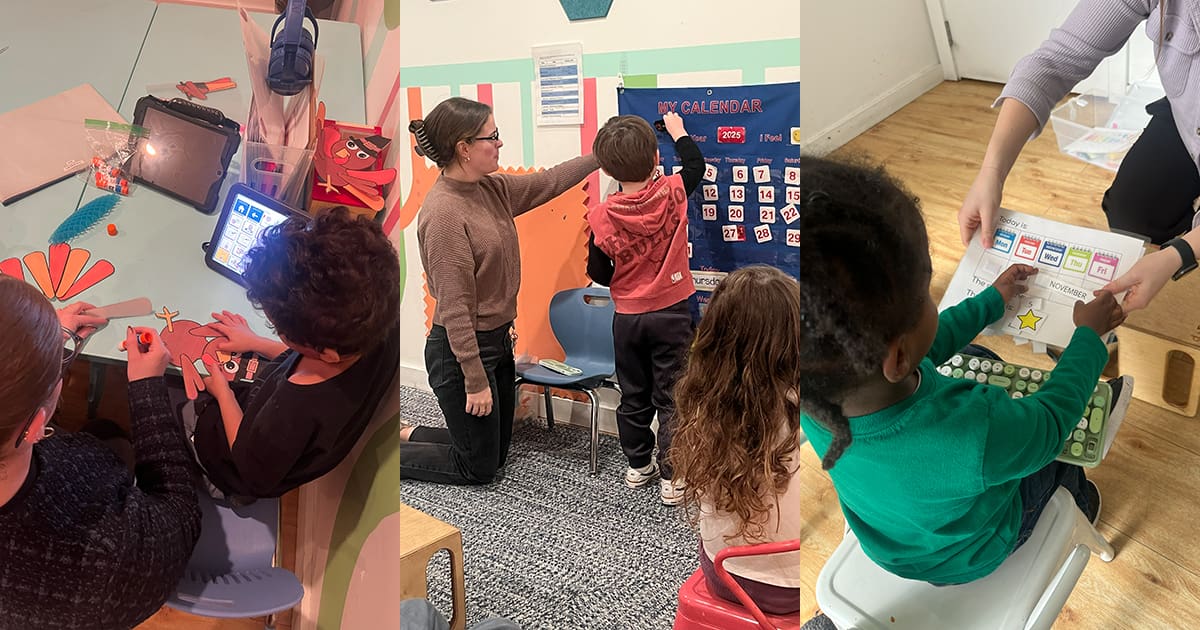Share this Post

Summer may be in full swing, but for many families, thoughts of the school year ahead are already starting to surface. If you’re wondering how to best prepare your child for preschool or kindergarten—especially if they have developmental delays, sensory needs, or challenges with communication—this might be the perfect time to explore Therapeutic Preschool at CST Academy.
Therapeutic Preschool isn’t just a classroom—it’s a supportive, integrated environment where learning and therapy happen side by side, and where every child gets the opportunity to thrive.
What Is Therapeutic Preschool?
At CST Academy, our Therapeutic Preschool program combines evidence-based early education with individualized therapy services. Children are supported by a team of experienced professionals including:
- Speech-language pathologists
- Occupational therapists
- ABA therapists (Board Certified Behavior Analysts and Registered Behavior Technicians)
- Feeding therapists
- Early childhood educators
Together, this team collaborates to help your child develop essential skills for school and life—all within a nurturing, play-based setting that encourages growth through routine, exploration, and social connection.
A Day at CST Academy: Learning, Therapy, and Friendship
Unlike traditional preschools, our program is built for children who may benefit from extra support in areas such as language development, sensory integration, social skills, self-regulation, and daily routines. Your child will participate in:
- Small group activities that promote social interaction
- Circle time and learning stations tailored to developmental goals
- Individual therapy sessions integrated into their day
- Play and motor activities designed to build coordination and confidence
- Peer modeling opportunities that help children learn from one another in real time
It’s a full preschool experience—with the added benefit of therapy, personalized support, and a loving team that sees your child’s strengths.
Why Starting Now Matters
When it comes to early childhood development, timing matters. The earlier children receive support in areas where they struggle, the better the long-term outcomes tend to be. At CST Academy, we often hear from families who wish they had started sooner—because once they see the progress their child is making, the transformation is undeniable.
Summer is the perfect time to start. Your child doesn’t need to wait for the fall school year to begin thriving. Enrolling now means they can enter the school year feeling more confident, more prepared, and more connected with their peers.
Services Offered at CST Academy
In addition to our therapeutic preschool program, CST Academy offers a full range of pediatric therapy services that can be seamlessly integrated into your child’s daily routine:
- ABA Therapy (Applied Behavior Analysis): Evidence-based behavioral support tailored to each child’s needs.
- Speech Therapy: Helping children build communication skills, language understanding, and expressive abilities.
- Occupational Therapy: Supporting sensory processing, motor coordination, and daily living skills.
- Feeding Therapy: Assisting children who have difficulty with eating habits, texture sensitivities, or oral motor development.
- Diagnostic Evaluations: Providing clear answers and next steps through comprehensive assessments.
This multidisciplinary approach means your child doesn’t have to bounce between providers. Everything happens in one place, in a way that feels natural and empowering.
Real Results, Real Confidence
Children who participate in therapeutic preschool often make faster and more meaningful progress. They develop the skills they need for success in school—such as following directions, communicating their needs, participating in group activities, and managing transitions. Most importantly, they start believing in themselves.
Parents frequently tell us how surprised they are by the changes they see—not just in their child’s speech or behavior, but in their confidence, independence, and happiness.
Join a Community That Cares
Choosing the right preschool is a big decision. At CST Academy, we make that decision easier by offering not only expert care, but a compassionate, family-first approach. We partner with parents every step of the way and provide regular updates, guidance, and encouragement.
Whether your child has a diagnosis or is simply showing signs of needing a little more support, we’re here to help you explore whether therapeutic preschool is the right fit.
Ready to Learn More?
It’s never too early to give your child the best start possible. If you’re curious about Therapeutic Preschool or want to learn more about how our full range of services can support your child’s development, CST Academy is here for you.
Contact us today to schedule a tour, speak with our clinical team, or begin the enrollment process. Fall may still be a few months away—but your child’s bright future can start right now.
Discover Our Pediatric Therapy & Autism Care
ABA Therapy
Support for children with autism.
Autism Evaluation
Expert assessments to identify child needs.
Pediatric Therapy Services
Speech, Occupational, Feeding, and Physical Therapy.
Therapeutic Preschool
A classroom environment designed for early learners with unique needs.

Is Therapeutic Preschool Right for Your Child?
Understanding How Therapeutic Preschool Supports Individual Growth
If you’re asking yourself, “Is therapeutic preschool right for my child?”—you’re not alone. Many parents explore therapeutic preschool when they notice their child could benefit from extra support in communication, social skills, or daily routines. At CST Academy, our therapeutic preschool program is designed to meet children where they are, helping them build confidence, independence, and readiness for the next stage of learning.

Find the Best Care for Your Child




